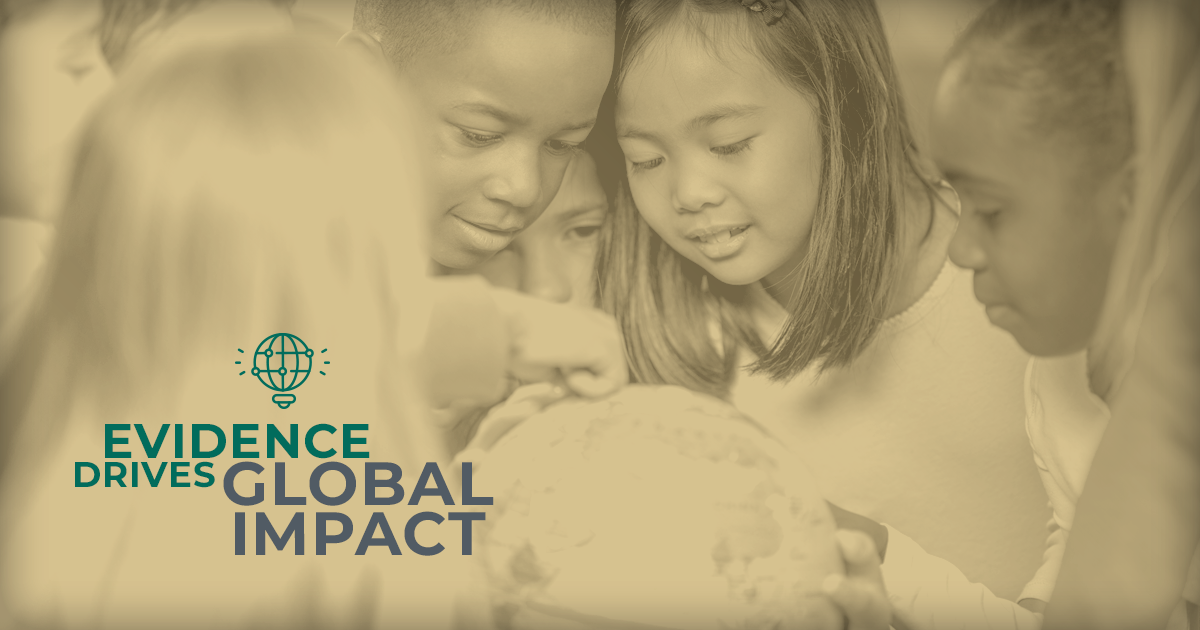Regular visitors to Mathematica’s blog know that, for the past few months, I have been sharing our company’s vision for the future of evidence-based decision making. This vision was developed by staff from all corners of our organization and in consultation with our Board of Directors. It is a testament to our employees’ strong desire to deliver on our mission of improving public well-being that they set an ambitious agenda that will require learning, adaptation, and growth. To embed high quality evidence in decisions that affect people everywhere, staff have imagined a future where Mathematica achieves progress together with a wider set of partners in a more diverse set of places and contexts. While we are based in the United States and conduct most of our work today for U.S.-based clients, we care about people’s well-being, period. Where they live does not matter. Our new vision makes explicit our aspiration to extend the reach of evidence that can improve people’s lives all over the globe.
Specifically, our 2035 vision calls for “shaping an equitable and just world in which evidence drives decisions for global impact.” It is by unhappy coincidence that our vision for the future anticipated global problems requiring global, evidence-based solutions—and that I am now writing about that vision as the international community wrestles with difficult questions about how to manage and recover from a worldwide pandemic.
What a profound and terrible reminder of our ever more interdependent world.
I say “unhappy coincidence” because we gathered input from staff before the pandemic in 2019 to develop our vision. At the time, our staff had other issues in mind, such as climate change and growing inequality. I am sure that if we had held focus groups and an all-staff survey a year later, the pandemic and its consequences would have emerged as a top priority for anyone interested in improving public well-being. Nonetheless, our ambition to confront international challenges and drive impact beyond the borders of the United States clearly precedes COVID-19. Over a decade ago, Mathematica dedicated staff and other resources to international research and evaluation so that we could bring evidence to bear on pressing issues in other countries. Although our expansion outside the United States meant entering into new issues areas, such as supporting smallholder farmers’ income and productivity through agricultural interventions and expanding a country’s electrical grid to reduce poverty, we had the methodological expertise to design rigorous studies that could build the evidence about what worked.
While we have already been involved in data-driven problem-solving in more than 50 countries across Africa, Asia, and Latin America, we believe the nature and scale of that work will change in the coming years. An increasingly interconnected global community will need evidence and solutions that apply to shared challenges. The pandemic provides a vivid illustration of an intercontinental crisis where countries have a mutual interest in developing effective solutions across different national contexts. Given the speed and convenience of international travel, an outbreak in one country can quickly spread to others. Likewise, an effective vaccine developed in one country has the potential to benefit everyone, regardless of nationality.
But the implications extend beyond public health scenarios. Automation could threaten to dislocate workers in countries across the globe, prompting a shared need for evidence-based approaches to help those workers across cultural and policy contexts. As we have already witnessed, violence and instability in one region of the world can spur waves of immigration that receiving countries in other regions lack the capacity to address. Climate change has already prompted international compacts intended to reduce greenhouse gas emissions and avoid the worst potential human, environmental, and economic consequences.
Our work to confront global challenges has already begun. Mathematica collaborated with the Children’s Investment Fund Foundation and the C40 Cities Climate Leadership Group to examine how cities are using the Global Protocol for Community-Scale Greenhouse Gases (GPC) to reduce their greenhouse gas emissions, and to learn how technical assistance could help cities better measure emissions and take actions to reduce emissions. Given that cities house more than half of the world’s population and account for more than 70 percent of global energy-related carbon dioxide emissions, the study findings provide useful information to funders on the efforts that will be critical to enable cities to keep accurate inventories of their emissions and track progress against their emissions goals.
The examination of the use of the GPC is but one example of how Mathematica is working with partners to provide data and evidence to inform climate change efforts and help make vulnerable communities more resilient. It’s a glimpse of where we are headed as a company. Mathematica’s 2035 vision imagines a world where evidence is driving impact everywhere, not just in the United States, and not just through research funded by U.S.-based organizations. To confront global problems, the international community will need reliable evidence and insights to act on urgent and emerging issues. We can’t forecast what all of those issues will be, but we are sure that if data inform decisions more often, we will all benefit.



